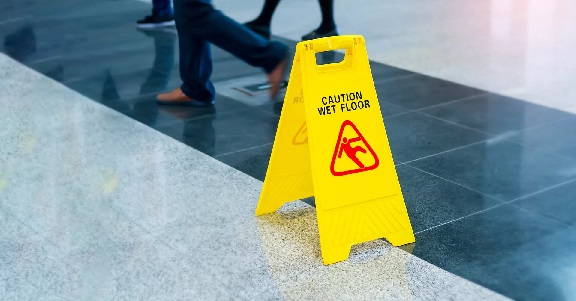
In the bustling state of Georgia, where urban landscapes blend with natural beauty, the risk of slip and fall accidents is an ever-present concern. From slippery floors in grocery stores to uneven pavements on sidewalks, these incidents can happen anywhere, often leaving victims with injuries and questions about their rights. In this comprehensive guide, we will delve into the specifics of slip and fall accidents in Georgia, including causes, liability, and steps to take if you find yourself in such a situation.
Understanding Slip and Fall Accidents
Slip and fall accidents occur when an individual loses their footing due to hazardous conditions on someone else’s property. These hazards can include wet floors, uneven surfaces, inadequate lighting, or obstructions in walkways. In Georgia, as in many other states, property owners have a legal duty to maintain their premises in a reasonably safe condition to prevent harm to visitors.
Steps to Take After a Slip and Fall Accident:
If you’ve been involved in a slip and fall accident in Georgia, taking the following steps can help protect your rights and strengthen your potential claim for compensation:
- Seek Medical Attention: Your health and safety should be the top priority. Even if your injuries seem minor, it’s crucial to seek medical evaluation and treatment promptly.
- Report the Incident: Notify the property owner, manager, or staff of the accident as soon as possible. Request that they document the incident in writing and provide you with a copy for your records.
- Consult with lawyer: Consider consulting with a knowledgeable slip and fall lawyer, who can evaluate your case, advise you of your rights, and help you navigate the legal process.
- Gather Evidence: Take photographs of the accident scene, including the hazard that caused your fall, any visible injuries, and surrounding conditions. Obtain contact information from any witnesses who saw the incident occur.
- Preserve Evidence: Preserve any clothing or footwear worn at the time of the accident, as well as any medical records, bills, or receipts related to your injuries and treatment.
Common Causes of Slip and Fall Accidents in Georgia
- Wet or Slippery Surfaces: Spills that are not promptly cleaned up, recently mopped floors without warning signs, or wet weather conditions can create slippery surfaces conducive to slip and fall accidents.
- Uneven Pavements: Cracks, holes, or uneven surfaces on sidewalks, parking lots, or other walking areas can pose significant tripping hazards, especially for pedestrians.
- Inadequate Lighting: Poorly lit areas, both indoors and outdoors, increase the risk of tripping over obstacles or failing to see hazards in one’s path.
- Negligent Maintenance: Failure to repair or maintain property features such as handrails, staircases, or flooring can lead to accidents and injuries.
Liability in Slip and Fall Cases
Determining liability in slip and fall cases can be complex and often depends on the circumstances of each incident. In Georgia, the legal concept of premises liability governs these cases, holding property owners accountable for injuries sustained on their premises under certain conditions.
To establish liability, the following elements must typically be proven:
- Duty of Care: The property owner or occupier owed a duty of care to the injured party, meaning they were responsible for maintaining safe conditions on the premises.
- Breach of Duty: The property owner failed to uphold their duty of care by allowing hazardous conditions to exist on the property.
- Causation: The hazardous condition directly caused the slip and fall accident and resulting injuries.
- Damages: The injured party suffered actual damages, such as medical expenses, lost wages, or pain and suffering, as a result of the accident.
It’s important to note that Georgia follows a modified comparative negligence rule, meaning that if the injured party is found partially at fault for the accident, their recoverable damages may be reduced proportionally to their percentage of fault.
However, if the injured party is deemed more than 50% at fault, they may be barred from recovering any damages.
Conclusion
Slip and fall accidents can have serious consequences, ranging from minor bruises to severe injuries requiring extensive medical treatment.
In Georgia, understanding the laws surrounding premises liability and taking appropriate action after an accident is crucial for protecting your rights and seeking fair compensation for your damages.
By being informed and proactive, you can step into safety and navigate the complexities of slip and fall accidents with confidence.





